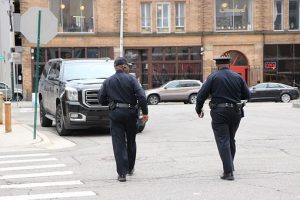Following a $2 trillion plus stimulus bill passed in the Spring of 2020, the Congress has finally been able to come to terms on another economic stimulus and relief bill, and the president has finally signed it into law. The bill is over nearly 5,600 pages long and has a whole host of miscellaneous provisions included therein.
However, for small businesses several issues were of particular concern. First, there have been a host of issues, questions, and need for clarification on the  previously created Paycheck Protection Program (“PPP”). Back in the Spring of 2020, that program was created to provide money to small businesses to help them pay their payroll while suffering from financial issues caused by the Covid-19 pandemic and widespread shut-downs and stay-at-home orders. The new stimulus bill clarifies that expenses paid with these funds may still be used in tax deductions and the amount of the PPP loan would not be considered in calculating the company’s gross income.
previously created Paycheck Protection Program (“PPP”). Back in the Spring of 2020, that program was created to provide money to small businesses to help them pay their payroll while suffering from financial issues caused by the Covid-19 pandemic and widespread shut-downs and stay-at-home orders. The new stimulus bill clarifies that expenses paid with these funds may still be used in tax deductions and the amount of the PPP loan would not be considered in calculating the company’s gross income.
PPP funds were generally supposed to be used for (and would only be forgiven for) use in covering payroll, mortgage interest, rent, and utility payments. The new bill should be expanding forgivable expenses to operational expenditures for software or computing services for business operations, property damage due to public disturbances that were not covered by insurance or other compensation, payments to suppliers where the supplies were essential to the operations, made pursuant to a contract prior to the covered period, or for perishable goods, or worker-protection costs required to comply with requirements of state or local governments, the CDC, OSHA, or the Department of Health and Human Services.
 New Jersey Lawyers Blog
New Jersey Lawyers Blog


 date of April 1, 2020 through December 31, 2020, they may be extended. Much depends on the current standoff between Congress and President Trump.
date of April 1, 2020 through December 31, 2020, they may be extended. Much depends on the current standoff between Congress and President Trump.
 dismiss her complaint and enforce an arbitration agreement which required the parties to
dismiss her complaint and enforce an arbitration agreement which required the parties to  litigation process, but still provide an enforceable dispute resolution process.
litigation process, but still provide an enforceable dispute resolution process. the value of the asset. This makes selecting an estate administration and
the value of the asset. This makes selecting an estate administration and  important New Jersey employment law decision, because to meet the constitutional requirements of due process and fundamental fairness, the New Jersey Civil Service
important New Jersey employment law decision, because to meet the constitutional requirements of due process and fundamental fairness, the New Jersey Civil Service  the Superior Court of New Jersey in the case of
the Superior Court of New Jersey in the case of 